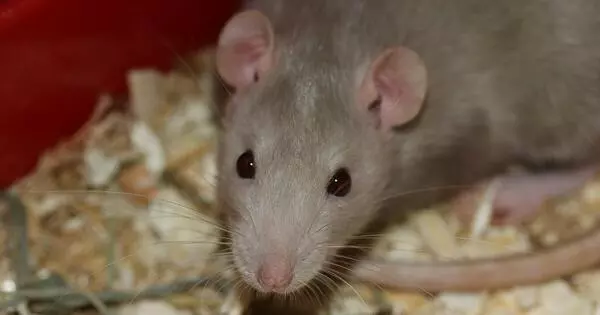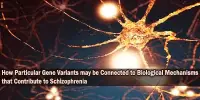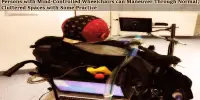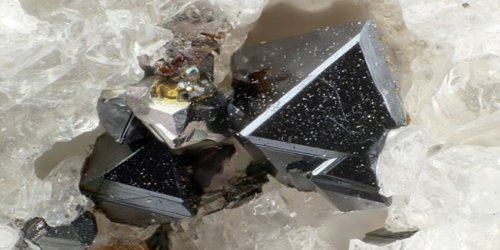Researchers have discovered several candidate genes that influence longevity. According to the researchers, the discovery of genetic loci that influence longevity only in females is intriguing and significant. Genetic loci are clusters of 10 to 100 genes.
“Some candidate genes influenced female life span while others influenced male life span,” said Randy Strong, Ph.D., of UT Health San Antonio’s Sam, and Ann Barshop Institute for Longevity and Aging Studies. “One gene cluster increased the longevity of both sexes. The findings were made in a population of mice with genetic diversity comparable to human populations, which is unusual for these types of studies.”
The findings were published in the peer-reviewed journal Science. Strong directs the Barshop Institute’s Interventions Testing Program site, which received National Institute on Aging (NIA) grant funding for the Interventions Testing Program in 2003 and is now in its 19th year of NIA funding.
Genetic smorgasbord
“The study models what happens in people,” said research coauthor James Nelson, Ph.D., of the Barshop Institute. “Unlike mice in many other studies, mice in this newly reported research are not all the same. Each has different genetic variants, resulting in slightly different proteins that do slightly different things, which together can impact aging.”
Even subtle differences can lead to different health outcomes as we age. Slight variations in the hemoglobin gene, for example, can cause the hemoglobin protein in red blood cells to be less effective at binding to oxygen and transferring it from the lungs to the body’s tissues, Nelson noted. Anemia is one effect.
Females and males differ in almost every aspect of aging you can explore. They each must be studied, both to understand aging in the two sexes and to develop effective treatments. If we offer the same drug therapies to females that we offer to males, and females’ aging is caused by different genes, we are not going to be as effective in our treatments.
James Nelson
Female longevity
The discovery of genetic loci that influence longevity only in females is interesting and important, Strong said. Genetic loci are clusters of between 10 and 100 genes.
“Females and males differ in almost every aspect of aging you can explore,” Strong said. “They each must be studied, both to understand aging in the two sexes and to develop effective treatments. If we offer the same drug therapies to females that we offer to males, and females’ aging is caused by different genes, we are not going to be as effective in our treatments.”
Confirmation in roundworms
The next steps are scrutinizing these candidate genes to find ones that are responsible for increased longevity. In the final part of the Science article, the team reported doing this. The researchers tested candidate genes in roundworms, which are often used in aging research because of their short life span. “A number of the candidate genes did affect longevity in the worms,” Nelson said.
That doesn’t prove that those same genes in humans are going to affect human life span, the researchers said. But it’s another part of the case for continuing to study the genetic basis of longevity.
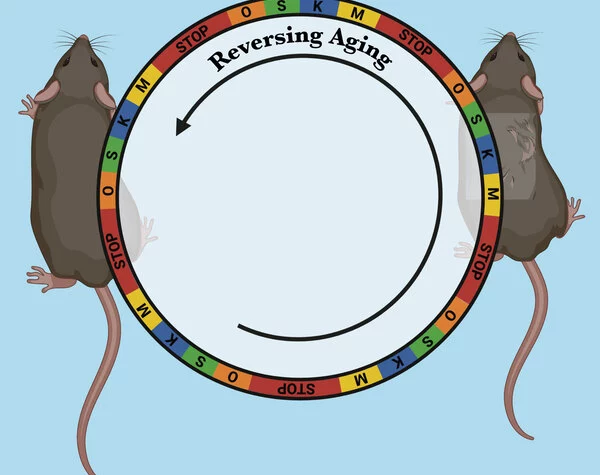
Powerful study design
As envisioned when the Interventions Testing Program began, having three sites where studies are conducted ensures statistical power and rigor and reproducibility of findings, Strong said.
The study is unique in that it is based on a large sample size of animals numbering several thousand, the authors said. “It is among the largest number of mice of any study that has attempted to identify genes that influence life span,” Nelson said.
Barshop Institute excellence
The Sam and Ann Barshop Institute’s Interventions Testing Program is one of several NIA-funded centers. The Nathan Shock Center of Excellence in the Basic Biology of Aging is one of them, and it provides core services to improve research on fundamental biological questions about aging. The Claude D. Pepper Older Americans Independence Center, named after the late United States Representative, is a center of excellence dedicated to increasing scientific knowledge in order to develop better methods of maintaining or restoring independence in senior adults. The Barshop Institute is the country’s only institute or university with these three centers.
Strong is a tenured professor of pharmacology at UT Health San Antonio’s Joe R. and Teresa Lozano Long School of Medicine. Nelson is a tenured professor of cellular and integrative physiology in the Long School of Medicine.
